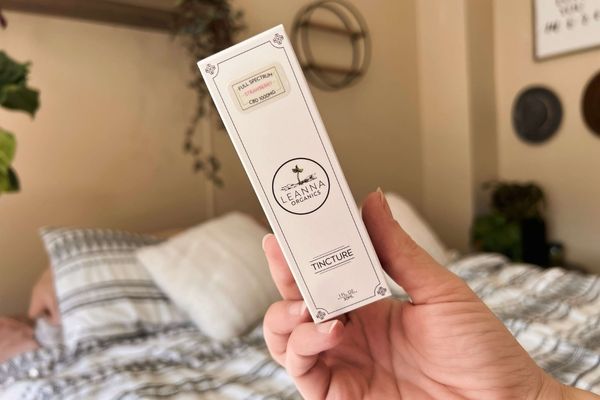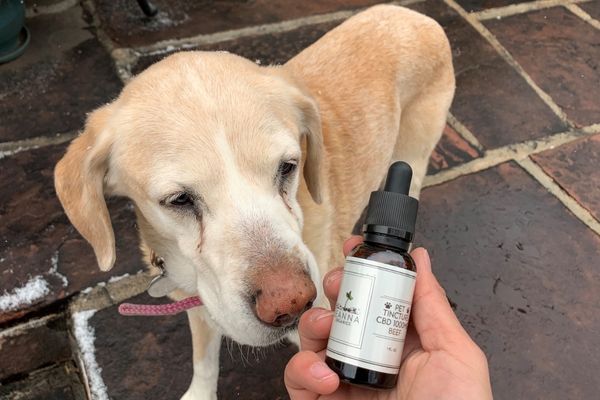CBD vs THC
CBD has become one of the most popular supplements on the market today. As of 2019, more than 1 in 7 Americans have tried the compound, and those numbers have unquestionably increased since then. That means almost 47 million people have tried and are probably now relying on it as a natural alternative for calmness, restfulness, and discomfort.
These are huge numbers, and they are even more astonishing when you look at them in context: CBD has only been legal at the federal level since December 2018, when the U.S. government passed the 2018 Farm Bill that removed CBD from the list of Schedule One drugs. However, as a newer supplement to the market, there remain questions of what CBD is, what it does, and how it differs from marijuana. Furthermore, when it comes to CBD versus THC, many consumers are confused, as they don't know the difference between the two compounds.
An important thing to understand is that Leanna Organics only makes CBD products. CBD is the primary active ingredient in our bath bombs, salves, and other self-care goods.
WHAT IS CBD?
CBD is short for cannabidiol. It is a specific type of cannabinoid found in the hemp plant and produced by various methods that involve extracting oil from hemp. Once removed from the hemp plant, it can be placed in multiple consumable ways, including CBD oil, gummies, bath bombs, and more. How CBD works differs from traditional solutions; it is plant-based, gentle, and addresses many problems of the body and mind.
WHAT IS THC?
THC is short for tetrahydrocannabinol and is the active ingredient in marijuana. THC has two sources; the marijuana plant and trace levels of THC can also be found in the hemp plant. THC is best known for being the active component of marijuana and is directly responsible for the pleasant (and sometimes anxious) intoxicating sensations someone feels when they consume marijuana.
Although products like Leanna Organics full-spectrum CBD oil have trace amounts of THC, they are not intoxicating at the recommended measurement.
CBD VERSUS THC: WHAT ARE THE SIMILARITIES?
As noted above, there are similarities between CBD and THC. First, it is worth noting that both CBD and THC are phytocannabinoids. They are compounds that interact with the endocannabinoid system in mammals. They are in the same family as endocannabinoids, made internally by all mammals.
Second, both CBD and THC can both come from a hemp plant, and levels of CBD can be found in the marijuana plant as well. However, from there, they have many different impacts. As such, while CBD and THC are related, the contrast between the physical and mental effects is as CBD has a much milder effect.
Third, both appear to have benefits. Indeed, marijuana - which contains relatively high amounts of THC - has been legalized for medicinal purposes in 33 states and Washington, D.C.
Although CBD is not currently approved or meant to diagnose, treat, cure or prevent any disease millions of people use it daily as a holistic alternative for wellness and skincare. Additionally, a prescription drug that is CBD-based became approved for use by the U.S. Food and Drug Administration. That drug is Epidiolex, and any doctor can prescribe it to treat two seizure disorders that children may suffer from.
CBD oil is a plant-based remedy that is non-intoxicating.
CBD VERSUS THC: WHAT ARE THE DIFFERENCES?
There are many differences between the two cannabinoids. Indeed, the differences far crowd out the similarities.
First, the cannabinoids both work differently. New research on the endocannabinoid system suggests that CBD does not bind directly with your body's cannabinoid receptors. Instead, it strengthens the bond between your body's internal receptors and the cannabinoids it produces. This enhances many reactions of your body's endocannabinoid system, making its responses longer-lasting and robust. THC, by contrast, does bind with your cannabinoid receptors, particularly receptors found in the brain. This helps to explain its intoxicating effects.
Intoxication is another critical difference between the two compounds. CBD produces no level of intoxication. That is not to say that it doesn't have some psychoactive effect - it does. Furthermore, Full Spectrum CBD may have up to .3% THC if made legally. However, this is not enough to result in intoxication. For this reason, you can ingest oral CBD like CBD oil and gummies and rub topical CBD like CBD salve and body cream onto the skin and not experience a "high."
Marijuana, of course, is entirely different, and the consumption of THC will likely result in some degree of intoxication that will also appear on a drug test. Indeed, this is the main feature of marijuana and why so many people use the compound.
The legal status is also a critical difference. As noted above, Medical Marijuana is legal in roughly 2/3 of the states in the country, and that trend is likely to accelerate in the next few years. Colorado legalized recreational marijuana first and it is now legal in eleven states, including Washington and D.C., and more states expect to legalize it. However, even within those states, many laws remain about when and where to consume marijuana, driving while under the influence, cross state lines, and more. CBD, by contrast, is legal at the federal level, thanks to the passage of the 2018 Farm Bill. This means CBD can be purchased in any store that meets all local criteria, consumed openly, ordered on the internet, and carried across state lines.
The legal status of both compounds has implications for where both products can be purchased. Even in states where it is legal, marijuana and THC are only available at specially licensed vendors, often called dispensaries. These vendors must meet extensive background checks, regulatory requirements, and more. CBD, however, can be purchased and sold like any over-the-counter supplement. Indeed, it is available almost everywhere these days.
Another critical factor of CBD vs. THC is that CBD is appropriate for pets, while THC is not. Millions of pet owners give their dogs and cats CBD for pets daily. It gently allows dogs and cats to relax and rest.
CBD is safe for pets, while THC is not recommended in high amounts.
IN CONCLUSION
The residue of confusion over the difference between CBD and THC will likely remain over time, but the good news is that it will eventually fade as more people become used to both products. It will take time and further legalization, but people will likely understand that CBD and THC, while different in many ways, both come from the cannabis plant and have benefits. CBD is not intoxicating and has a much more mild effect than THC.
Leanna Organics third-party tests our CBD to ensure it is free from THC, and thus non-intoxicating.
Want to learn more about CBD? Stop by our CBD shop in Westminster, CO. We offer free samples and are happy to answer any questions you have about integrating CBD into your lifestyle!
Written by Scott Mollenkopf





